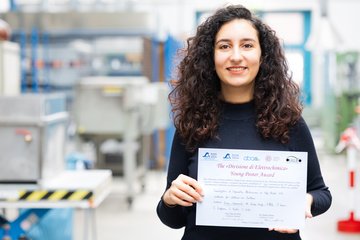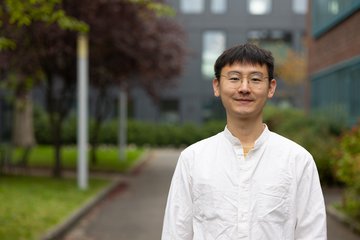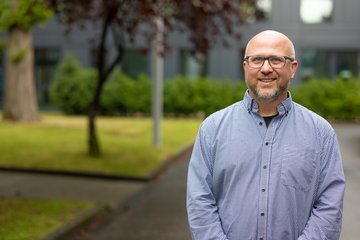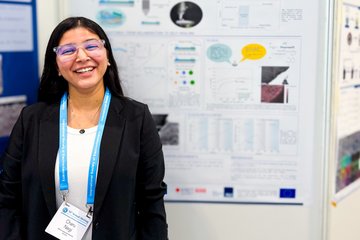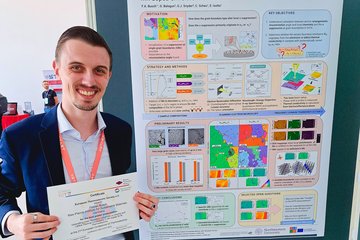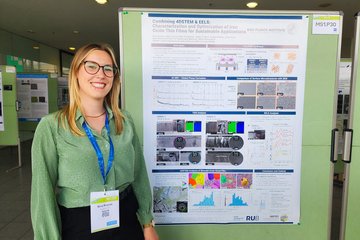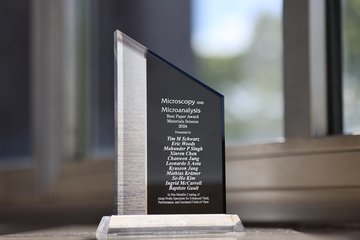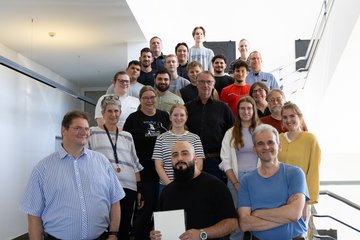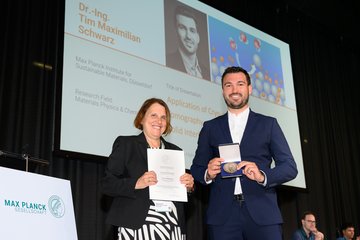Alle Typen
1.
Zeitschriftenartikel
Effect of Cross-Linking on the Structure and Growth of Polymer Films Prepared by Interfacial Polymerization. Langmuir 31 (44), S. 12279 - 12290 (2015)
2.
Zeitschriftenartikel
Linear interfacial polymerization: Theory and simulations with dissipative particle dynamics. The Journal of Chemical Physics 141 (19), 194906 (2014)
3.
Zeitschriftenartikel
Hybrid approach combining dissipative particle dynamics and finite-difference diffusion model: Simulation of reactive polymer coupling and interfacial polymerization. The Journal of Chemical Physics 139 (15), 154102 (2013)
4.
Zeitschriftenartikel
End-coupling reactions in incompatible polymer blends: From droplets to complex micelles through interfacial instability. Macromolecules 46 (12), S. 5080 - 5089 (2013)
5.
Zeitschriftenartikel
Theoretical study of twin polymerization – From chemical reactivity to structure formation. Macromolecular Theory Simulations 21 (9), S. 615 - 628 (2012)
6.
Konferenzbeitrag
Multiscale simulation of polyurethane network. World Polymer Congress 2012, Blacksburg, Virginia Tech, USA, 24. Juni 2012 - 29. Juni 2012. (2012)
7.
Konferenzbeitrag
Mesoscale simulation of network formation and structure, combining molecular dynamics and kinetic Monte Carlo approaches. European Polymer Congress 2011, Granada, Spain, 26. Juni 2011 - 01. Juli 2011. (2011)
8.
Vortrag
Multiscale simulation of polyurethane network. World Polymer Congress 2012, Blacksburg, Virginia Tech, USA (2012)
9.
Vortrag
Multiscale simulation of PU coatings. BASF-Seminar, Ludwigshafen, Germany (2012)
10.
Vortrag
Mesoscale simulation of network formation and structure, combining molecular dynamics and kinetic Monte Carlo approaches. European Polymer Congress 2011, Granada, Spain (2011)
11.
Vortrag
Simulation of polyurethane and water interac-tions with the ZnO surface: DFT and classical OPLS-AA force field calculation. 4-th World Congress on Adhesion and Related Phenomena, Arcachon, France 2010 (2010)
12.
Vortrag
Mesoscale simulation of interpenetrating networks formation by polymerization of silicon spiro compounds. EUPOC2010 – Hierarchically Structured Polymers, Gargnano, Italy (2010)
